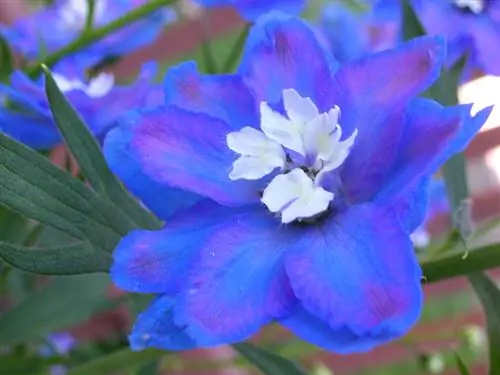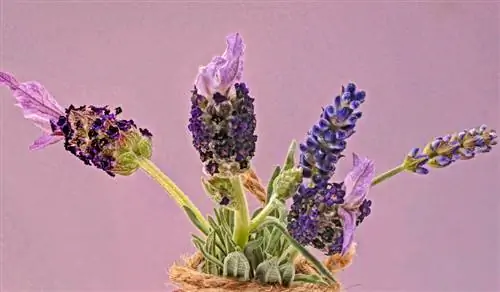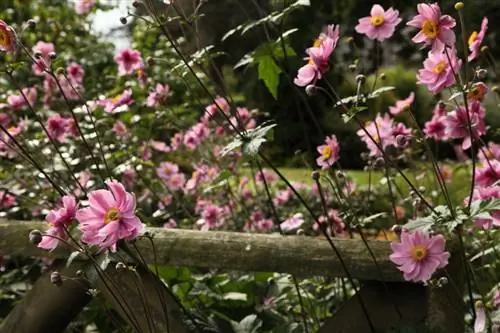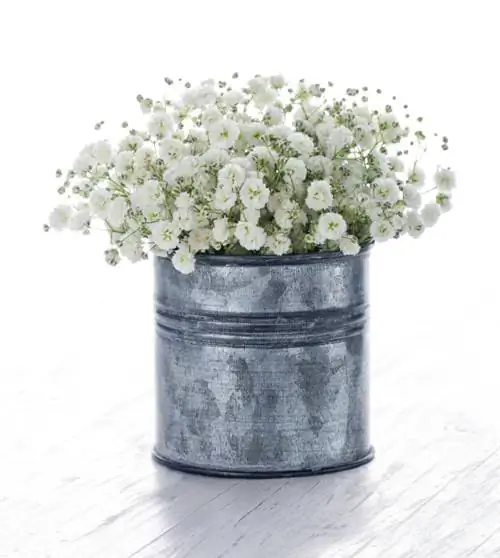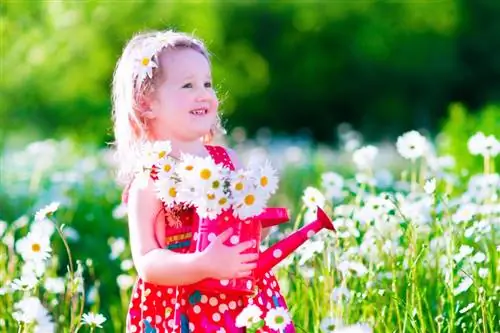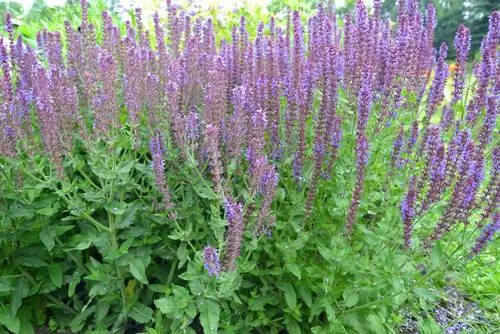- Author admin [email protected].
- Public 2023-12-16 16:46.
- Last modified 2025-06-01 06:02.
The various delphinium hybrids beautify any garden with their tall, mostly blue or white flowering candles. The lush splendor can even be brought out a second time by careful pruning after flowering.
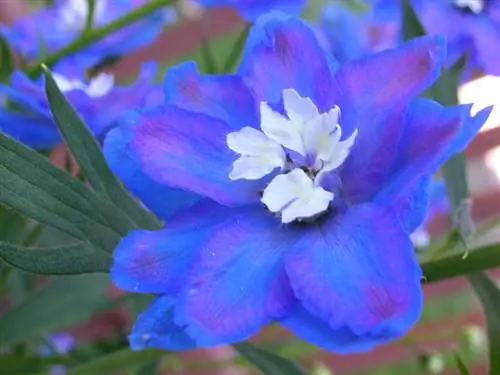
When does delphinium bloom and how can the flowering period be extended?
The flowering period of delphiniums mainly extends from June to July. By carefully pruning after flowering, you can attract a second flower between September and October, although it will be less lush.
Dark spur is a summer bloomer
Lark spurs are extremely versatile plants, as evidenced by the approximately 5,000 different registered varieties. The large number proves that blue does not have to be boring, but rather has very different tones and variations. There are also delphinium varieties that not only bloom blue, purple or white, but also red, yellow or pink variations. What they all have in common, however, is that they develop their magical flowers in early summer - usually between June and July.
Extend flowering time by pruning
It's just a shame that every blossom is fleeting. This also applies to the delphinium, which develops its follicles with numerous seeds from mid to late July at the latest. If you do not want to collect seeds, cut off all withered shoots to about 20 centimeters above the ground. Then the perennial invests its energies instead of producing seeds in new flowers, which usually appear from the end of August / beginning of September. The second flowering of the delphinium can be admired between September and October, but is not as lush as the first summer flowering.
Win seeds
Lark spurs can be propagated very easily using self-collected seeds, which can simply be collected from the ripe follicles in autumn. But be careful, because all parts of the plant - and especially the seeds! - are highly toxic and should therefore be kept out of the reach of children and animals. By the way, you don't necessarily have to collect the seeds, as the delphinium sows itself very reliably.
Tips & Tricks
If you want to grow delphiniums yourself from seeds, be sure to pay attention to which variety the mother plant belongs to. F1 hybrids in particular are poorly suited for seed production because their offspring always have completely different characteristics than the mother plant.

